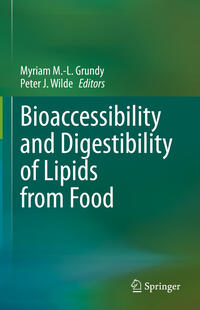
The structure of a food influences the way it is transformed during processing and digestion. This in turn has an impact on nutrient bioaccessibility (release) and digestibility, and subsequently on the physiological response and health of the individual who consumes that food. Although evidence exists on the health benefits associated with the inclusion of certain lipid-rich foods (e.g. nuts, dairy products and fish) in the diet, the mechanisms that explain the physiological effects and the long-term benefits are not well understood. Lipids in themselves have many beneficial health effects: they are a source of energy and essential fatty acids, they are structural components of cell membranes, they are required to solubilise fat soluble compounds, and they serve as precursors of hormones. In addition, the overall structure of the food containing the lipids plays a crucial role in determining health benefits, notably by influencing lipid bioaccessibility and digestibility. Bioaccessibility and digestibility of lipids from food uniquely focuses on the physico-chemical properties of lipids and lipid rich food, as well as the subsequent effects on human health. Chapters from experts in food digestion examine food structure at both the macro- and micro- levels, covering lipids from plant and animal food products. The editors have developed the book for dietitians, nutritionists, and food scientists. Clinicians and other health professionals, educators in nutrition, and others working in the food industry will also find the material relevant.